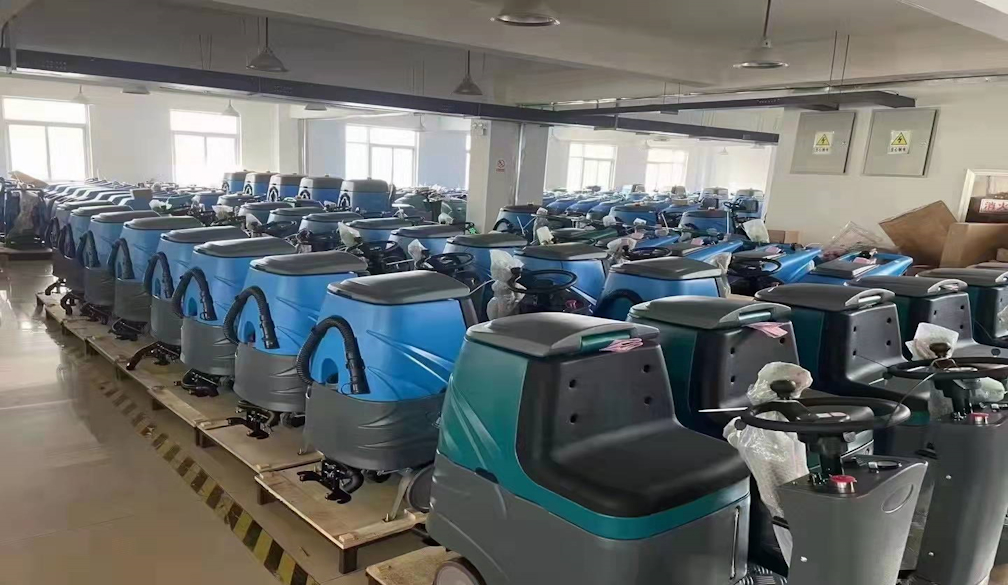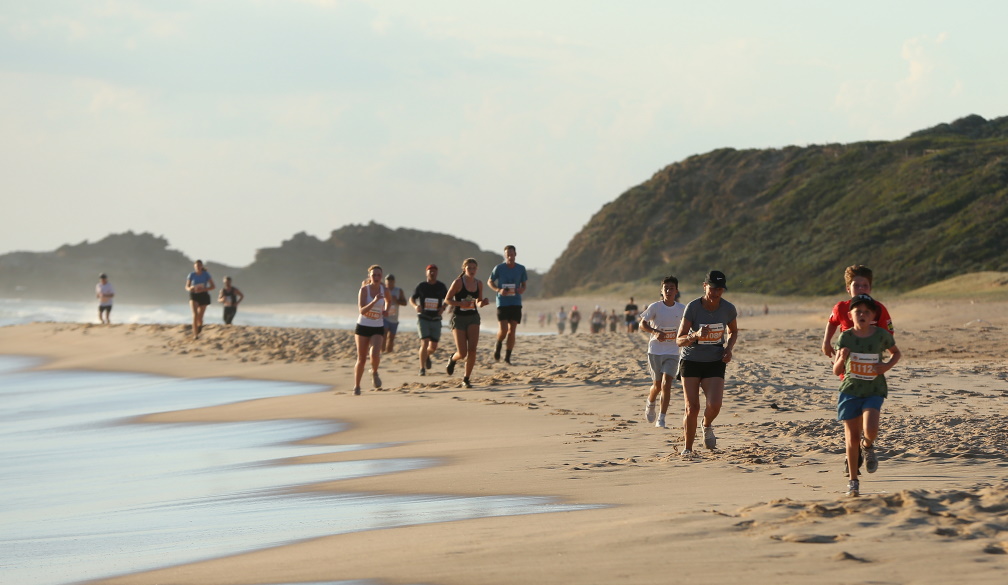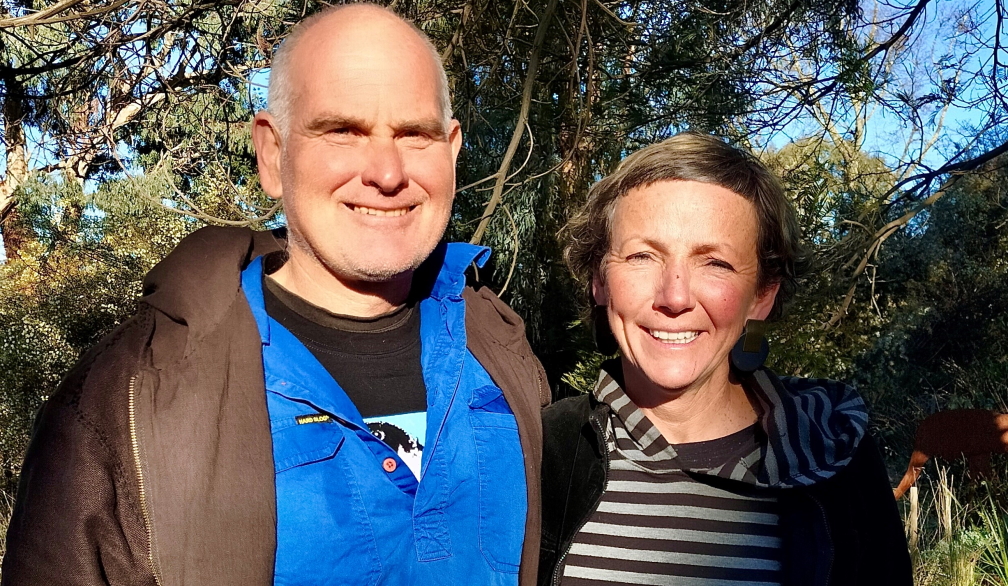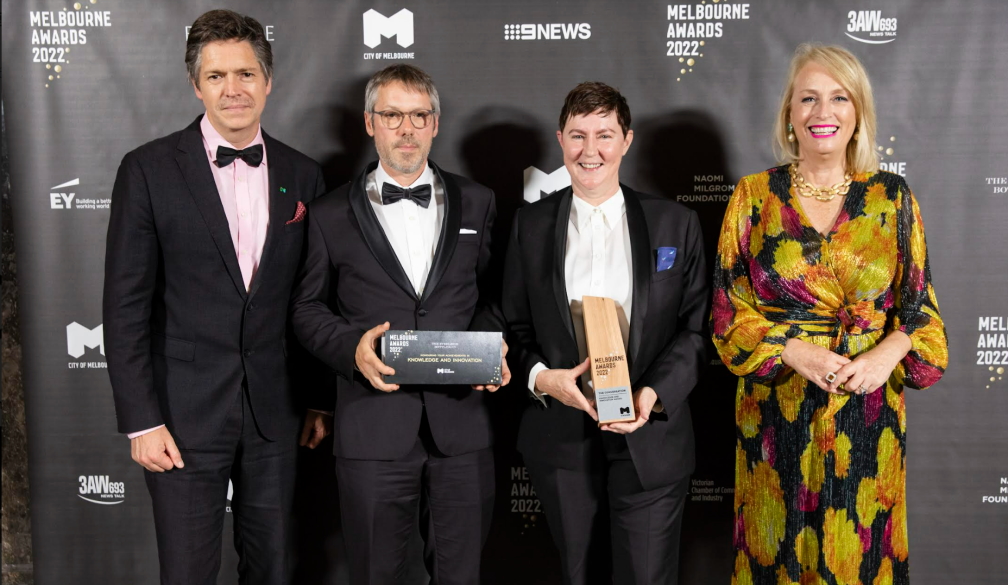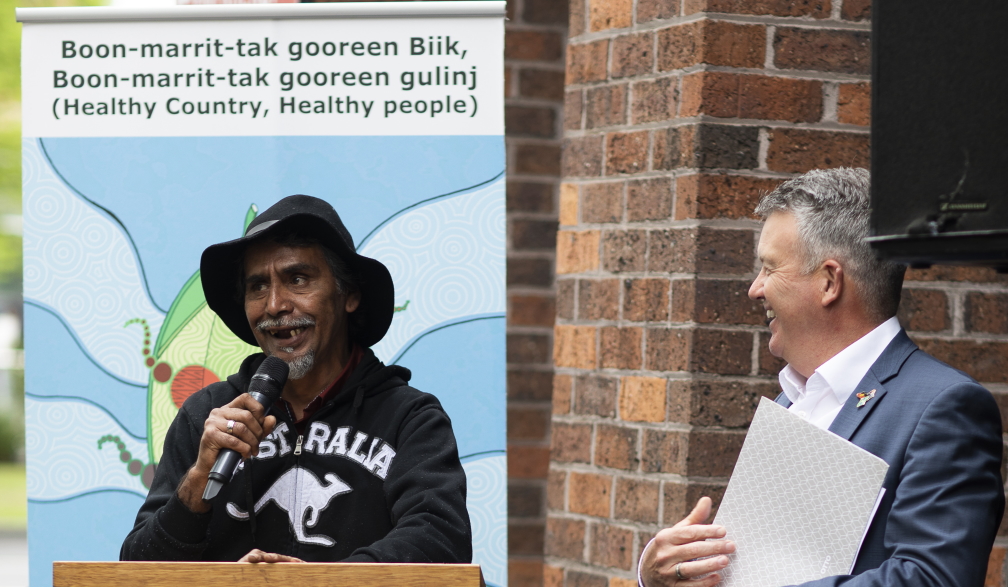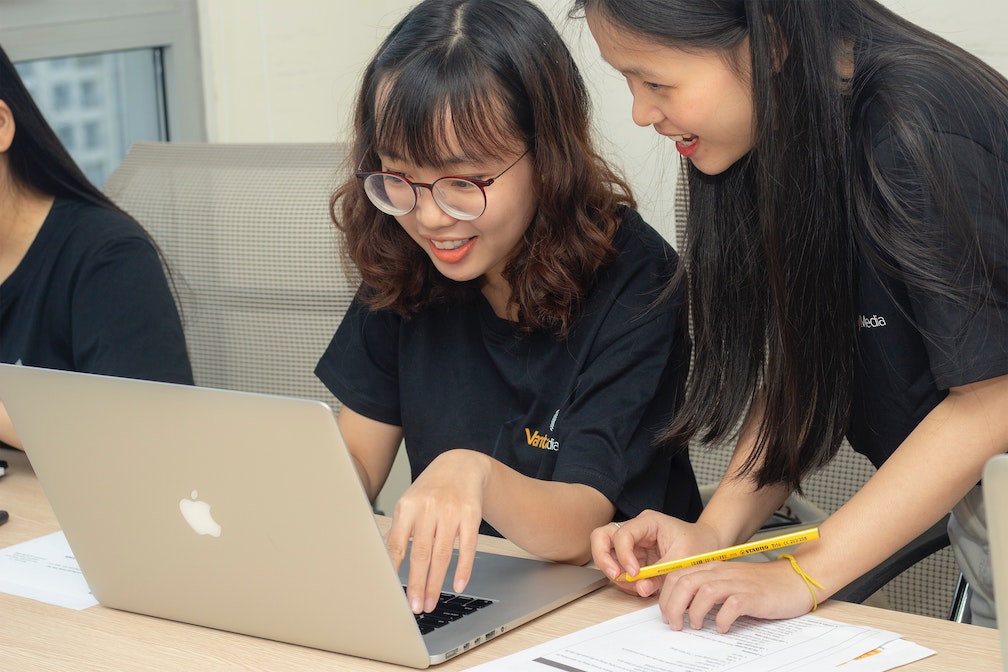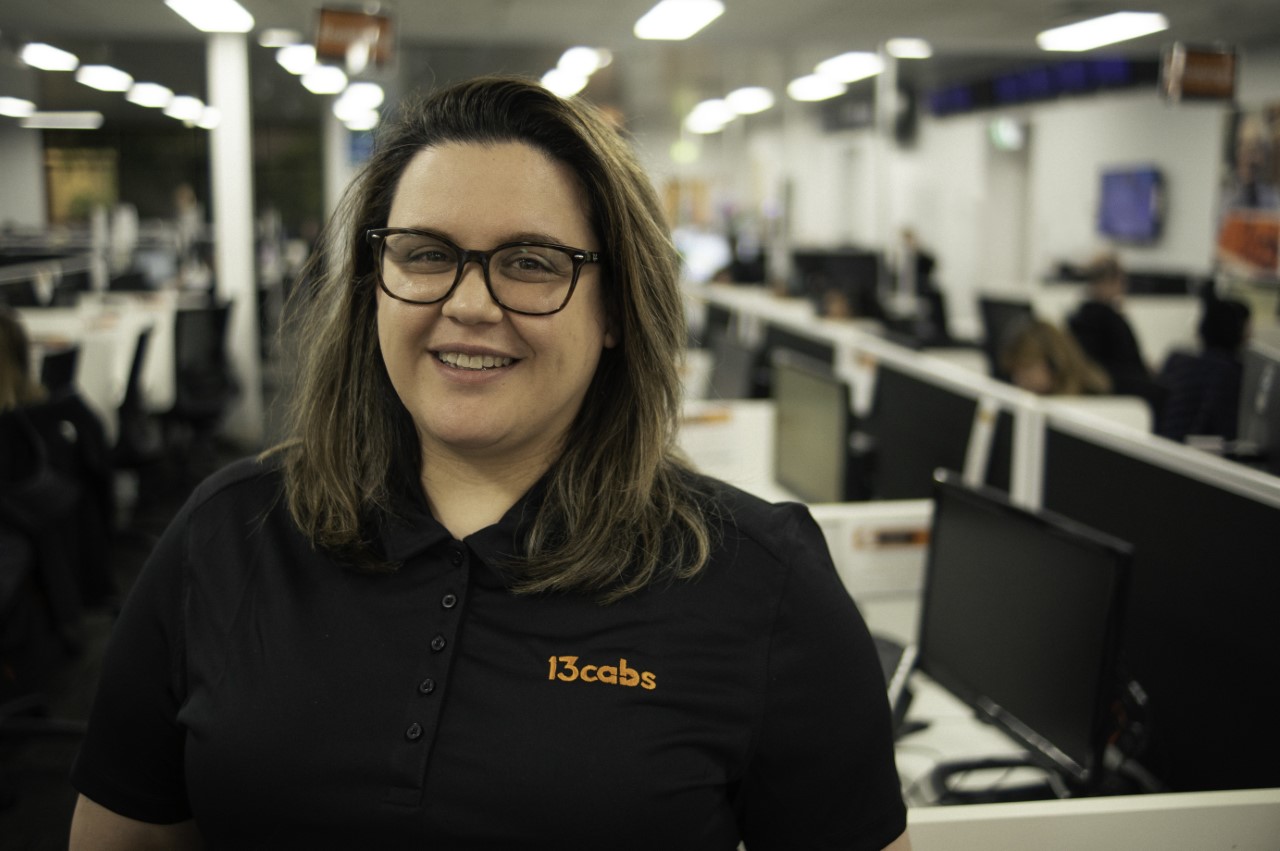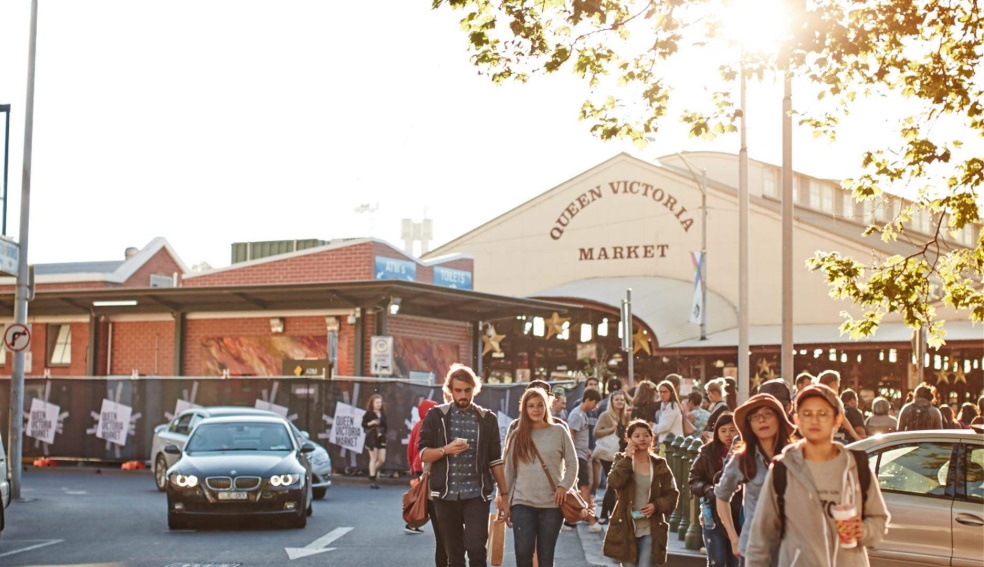Scott Morrison discusses Closing The Gap strategy
- Written by Scott Morrison
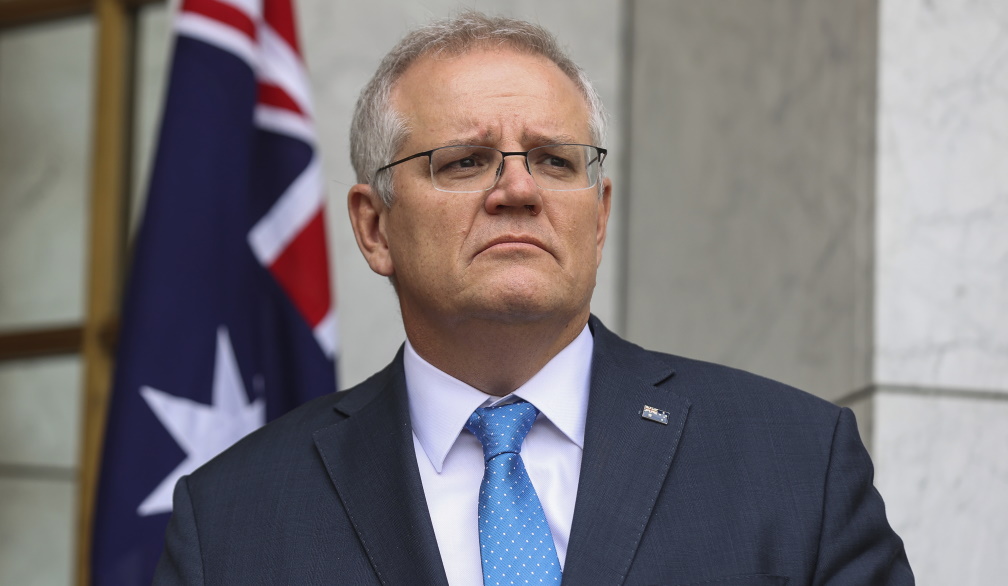
PRIME MINISTER: Well, g’day everyone. I’m joined today by Pat Turner. It’s wonderful to be here with you Pat. I want to thank you, as the head of the Coalition of Peaks, bringing together over 50 wonderful organisations doing such an incredible job serving Indigenous Australians all around the country with the passion and professionalism and dedication they do is one thing. To get them all together to form these partnerships, to build this trust, is another. And, I want to thank you for our personal partnership that we’ve worked on so well for these many years now, and realising this day together and so many more ahead of us.
Can I also welcome Fiona Cornforth who's with us here today from the Healing Foundation. I met with Fiona some time ago as we first discussed the major announcement that we've made today regarding the Stolen Generation and the sorry arrangements we've entered into there for the Northern Territory, the ACT, and and right across those jurisdictions. A special shout out to those I know down there in Wreck Bay, which we're able to get a message to you today, as well. And, I know this is an important day for you and all of those who’s worked so closely with your community over a long time.
Of course, to the Minister for Indigenous Australians, who reminds me and all of my Cabinet that we are all ministers for Indigenous Australians. And, that's the way Ken works. Ken is a true inheritor, I think, and a carrier of the legacy of those who've gone before him in this place, particularly Senator Bonner. And, he has carried this forward in a way that only Ken could. The opportunity to appoint Ken into this role and the way he has conducted himself in this role has has been healing. It's been practical. It's been engaging. It's been wise. And, his counsel, we have all relied on through this process; his calm spirit and his wise counsel. So, Ken, it's wonderful to be here with you also today.
Today in the Closing the Gap Implementation Plan, which I tabled in the Parliament, it reflects an important partnership. It reflects the fact that these goals that we have set now for many years, that we've provided greater detail to, have required and need a different way of delivering. It needed a different way of working together. That is not a criticism of previous efforts. All of these efforts have been well-intentioned. All of these efforts have been well-motivated. But, good government and the delivery of important services is achieved by ensuring that you get your processes right, your partnerships right, you get your structures right, you get your systems right so you can deliver on the ground. Because, at the end of the day, the only thing that matters when it comes to closing the gap is closing the gap. And, that only happens when more than 50 Indigenous organisations are empowered and supported to go and do the work they're doing, delivering services around this country. It only happens when state governments are doing what they need to do, when Federal Governments are doing what we need to do, and local governments are doing what they need to do. And, that's what this new partnership is about.
There's accountability. There's transparency. I can tell you, as Pat will agree, there's candid discussion, there's real discussion. But, that has been made possible because of the trust that we have worked hard to build, that we can have the hard conversations, and there will always be, even with the commitments of more than a billion dollars today - the single largest response that our Government has made to the Closing the Gap commitments - there will still be the scrutiny. I have no doubt that through the Joint Council that Pat and Ken chaired together, that that work, that scrutiny, that that pressure will continue to come, as indeed it should, because that's how good systems work. That's how good partnerships work.
So, I'm pleased we're able to act further today across a whole range of areas, whether it's in health, whether it's in justice, whether it's in education, which it's giving young people that hope. Because, at the end of the day, as I said in my speech today, when a young Indigenous boy or girl can grow up with the same expectations of any other Australian, not until that day is the gap closed, not until that day. So, I want to thank those who've co-laboured with us on this, and will co-labour with us into the future. I'll pass you on to Ken and then Pat and then Fiona. Thanks Ken.
THE HON. KEN WYATT AM MP, MINISTER FOR INDIGENOUS AUSTRALIANS: Thank you very much, Prime Minister. And, I also want to acknowledge my partner in the work that we've done together, Pat Turner, and Fiona, in terms of the work we've done in respect to the Healing Foundation. What makes this extremely unique is that every word and every paragraph has been jointly negotiated and agreed to by the 51 peak organisations, our Government, every state and territory government, including ministers, officials, and then the sign off by National Cabinet endorsing the approach and endorsing the 17 targets that are in there, that we will all work collectively to report on and to make achievements in gains against each of those targets.
It's always been the Commonwealth that has reported in the past in the, using aggregated data. This time what we've done is state and territory parliaments will now report on these targets within their parliaments, within their jurisdictions. Substantial difference. Pat’s work with her 51 peaks, and the state and territory peak organisations, will play a critical role in the partnership that has evolved from the work that we have done. The first meeting Pat was at in Redfern she took a leadership role, and in that leadership role brought together 51 different organisations to work side by side, focusing on that the outcomes would be not about our organisations or our Government, but for the children of the future, for our communities, and for those who have been affected by government policies over a period of time. This is unique. It's an arrangement that I've not seen prevail at any other tier of government or any other government in the past, because we now all take joint accountability for this strategy. And, it's a significant journey forward.
The level of resourcing that our Government has committed are in key and critical areas that focus on health, some of the infrastructure that is required for clinics, but more importantly, in the early years and the foundation years of a child's journey, through both health and education.
And, then the other most significant plank is the partnership and joint accountability to each other. I have been buoyed by the responses of state and territory ministers in this whole process. I also want to acknowledge every Cabinet Minister in the Morrison Government who have played a critical role in their own portfolios in committing to the directions that we have negotiated and co-designed with Aboriginal leaders, Aboriginal organisations, and them through the communities that they engage with.
This now is owned by all of us. As a nation, this is a game changing outcome, and the accountability and transparency will be a significant factor. But, I want to congratulate everybody who has been involved, and the Prime Minister. I want to acknowledge your support, because leadership is absolutely critical in giving us the scope and latitude to explore what it is that we need to consider in achieving closure of many of the gaps. Some have become major areas that we need to do substantially more work in.
I’ll now hand over to my good colleague and friend, Pat.
PAT TURNER AM, CO-CHAIR, JOINT COUNCIL ON CLOSING THE GAP: Sorry about that. Thank you very much, Minister Wyatt. Today is another historic day under the partnership arrangement that was set up in December 2018 between the Coalition of Peaks and all governments on Closing the Gap. I want to acknowledge the leadership of the Prime Minister. It was you who first agreed to the proposal from the community controlled leaders for a formal partnership with governments on Closing the Gap. It was also you who supported the national agreement being built around the four priority reforms that came from Aboriginal and Torres Strait Islander peoples and the Coalition of Peaks, and are designed to change the way governments work with our organisations and our communities. Today, the Commonwealth is taking a significant step forward in making commitments a reality.
I also want to thank Minister Wyatt, my Co-Chair of the Joint Council on Closing the Gap. The way in which we are working together is a testament to the partnership we have set out to achieve.
Importantly, I also want to acknowledge the Aboriginal and Torres Strait Islander community controlled leadership around the country, and those that make up the Coalition of Peaks. We came together to change the way governments are working with our organisations, our communities and all Aboriginal and Torres Strait Islander peoples. It has been a hard slog, but we are starting to see what can be achieved when we work together for all Aboriginal and Torres Strait Islander peoples and when we partner with governments. The Coalition of Peaks also released its implementation plan today. You can find it on our website. We know that having a seat at the table with governments comes with significant responsibilities and obligations to our organisations, to our members and communities that we serve across Australia. Our implementation plan sets out our commitments to Aboriginal and Torres Strait Islander people and to governments as part of our partnership. Like governments, we will report on our work annually.
Today's funding commitments by the Prime Minister are very significant. Our people have waited a long time for compensation for Stolen Generation survivors. Fiona will speak with you in more detail about that, and the Healing Foundation is a part of the Coalition of Peaks. But, I just want to say how much this means to me personally. It is important recognition. I also know, however, that there are many survivors that have died waiting for this recognition. My mum being one of them.
The Government is also making some significant commitments in the areas of early childhood, providing much needed additional supports and services, including in our remote communities. I am pleased to see that funding will be spent in line with priority reform to, and delivered through, our own organisations. I am very pleased that there is commitment to address the poor state of infrastructure in our community controlled health clinics across the country - $100 million over the next few years to help us get those up to scratch. We've got a long way to go, but it's very important commitment to which I'm very grateful to Greg Hunt.
We also have some very important commitments to funding justice initiatives for our people and support for the Justice Policy Partnership, which we know, you would know that we established after Joint Council in April this year. We have a long way to go to seeing improvements in the lives of our people across the country and for the gap of life outcomes to be closed. But, this is an important step forward. The Coalition of Peaks will be working with governments over the next 10 years to make sure that we do all we can for our peoples and ensure the full, full implementation of the national agreement. Thank you.
PRIME MINISTER: Thank you, Pat. And, Fiona.
FIONA CORNWORTH, CEO, HEALING FOUNDATION: The Healing Foundation welcomes today's Federal Government announcement of reparations and wellbeing support for Stolen Generation survivors. We know how long and how tirelessly our community leaders have been working towards this. And, it's an emotional time knowing that they've been heard and that our Aboriginal and Torres Strait Islander community controlled organisations that have done the heavy lifting so long, alongside impacted families, have been heard.
The scheme is practical support for Stolen Generation survivors to address the often complex health and economic needs that are evidenced to be a result of forced removal and forced removal alone. The truth of this is important. Reparations to acknowledge that truth is important. It's something, but it's not everything. It won't provide that end state of a healed nation. But, there is hope in the priority reforms under the national agreement.
I acknowledge Pat, here as lead convenor, and all leaders of the Coalition, driving out better ways to achieve outcomes, alongside governments. I echo Pat’s thanks to the partnerships, to those involved. The reforms are critical and we're grateful to be partners of an agreement and implementing an agreement that we contribute our excellence and our testimonies to collectively. Thank you.
JOURNALIST: [Inaudible] Can you commit to presenting legislation in this term of Parliament that puts [inaudible] voice?
PRIME MINISTER: We will just continue to take the next step and the next step and the next step and Pat, and sorry, Ken might want to add further to this. But, we, I want to thank Marcia and Tom for the great work they've been doing on that. Obviously, working through the processes set up by the Joint Standing Committee, a bipartisan recommendation. That is being actioned, and we will continue to take the steps that are set out through that joint agreement. But, Ken.
THE HON. KEN WYATT AM MP, MINISTER FOR INDIGENOUS AUSTRALIANS: The report clearly sets out the steps we need to take. And, the advice that I have received from all people who are involved in all of the forums was to be methodical and make sure that we get it totally right. And, I'm reading the report and we'll take that to Cabinet for further discussion. And, at some point I'll have a discussion with the Prime Minister as well.
JOURNALIST: [Inaudible] that we’re looking at a longer term initiative than this term?
THE HON. KEN WYATT AM MP, MINISTER FOR INDIGENOUS AUSTRALIANS: No, no, let’s not put, no, let’s not put words into this that detract from the importance of the voice. We want, as Aboriginal people, we want to get this right. We want it firm. We don't want to see the history of bodies being created and I'm done. And, that's why all of the work that the committees have done has been done in deliberation with Indigenous leadership right across this country. It's like the partnership, the partnership with the 51 peaks will be enduring. What we want is an enduring structure where our people at the community level can also have a voice to governments, along with the relationship that we have already established with Pat and the 51 peaks.
JOURNALIST: Prime Minister, should states like WA that don't have compensation schemes be matching the Government’s Stolen Generation Redress Scheme? Minister Wyatt, obviously you're from WA. What do you think about what our State Government should be doing?
PRIME MINISTER: I'm pleased that we're doing what we're doing. I'm very pleased we're doing that. We're acting within our responsibility. And, I'm, I'm pleased we've done that. I'm incredibly pleased. I’m pleased for Pat’s mum, I'm pleased for her family. I'm pleased for all of the families, Fiona, that I know will welcome these news. And, so, it's for others who have responsibilities to exercise theirs. Ken.
THE HON. KEN WYATT AM MP, MINISTER FOR INDIGENOUS AUSTRALIANS: And, I would encourage state governments to give serious consideration to what we've done, because we've got to remember the policies that were implemented did tear apart families. My own mother was a member of the Stolen Generation and she and her brothers and sisters never got to see each other until they were in their 20s. So, the first 18, first 20 years of their life, they were not together. But, when they did, they reminisced about the families from the missions they were in, who were their families, but also their maternal families. You can't undo the emotional impact that that has. And, you can see the reaction when Pat talked about her mother. It stays with us, because those memories are very strong. And, the decent thing that we should do as human beings is consider what we've done and consider options to support.
JOURNALIST: A gap you haven’t spoken about is the difference between full vaccination amongst Indigenous Australians and the national statistic. General Frewen today said it's only 10 per cent amongst Indigenous Australians. What are you doing to make sure that that is increased? And, Pat, can I ask you, is the 80 per cent target to reopen, is that enough to protect Indigenous communities?
PRIME MINISTER: Well, let me address those, and then ask Pat to address them as well, because we're working together on this. Through the agencies, the figures I have is that at least one dose is at 25 per cent and two doses at 11.7 per cent. And, that is, that is below where we are with other communities. But, I did note today in my presentation, and there's great credit that is due to the work that Pat and all of her organisations have been doing. As I've said before, one of our greatest concerns, if not our greatest concern at the outset of this pandemic, was the potential harm it would do in Indigenous communities. And, to date, we have been successful in preventing that harm in Indigenous communities. And, that's been from a strong partnership. I acknowledge the work Michael Gunner’s been doing in the Northern Territory on this in particular. When we get around the National Cabinet table, there is not a meeting - well, it’s our fiftieth this week - there's not a meeting where Michael has not raised this, and it's been raised by other premiers in other contexts. So, it remains a very high priority for us. It's a challenging area to work, as Pat can refer to.
On the issue of the percentage targets, though, I'm glad you raised that, and Pat and I have discussed that earlier today. One of the reasons when you go through the 70 per cent and 80 per cent, we're talking about 70 and 80 per cent right across the country or right across a state, but we have always recognised, as does the Doherty Institute work and their advice to us, that there are remaining vulnerable communities within the country that we will continue to have to take a very bespoke approach, a very customised approach, and that is certainly true for Indigenous communities. Absolutely true for Indigenous communities. And, so, we will, we will work with the Indigenous health sector to ensure that we can deliver on that very customised approach. And, and frankly, it's different in a remote Indigenous community as opposed to an Indigenous community in an urban area. And, so, we need that flexibility. Pat.
PAT TURNER AM, CO-CHAIR, JOINT COUNCIL ON CLOSING THE GAP: Yes, my view is that we need 100 per cent vaccination of all eligible Aboriginal and Torres Strait Islander people no matter where they live. But, 80 per cent vaccination of the general population living, especially in remote communities or where there are high concentrations of Aboriginal and Torres Strait Islander people living in overcrowded housing and in poverty, we just can't afford for any strain of COVID getting in. So, I'm going for 100 per cent vaccination, and we’ll continue to work with all the jurisdictions, as we have to date, to make sure we achieve that.
JOURNALIST: [Inaudible] first recommended compensation for survivors of the Stolen Generations in ‘97. Since then, many members of the Stolen Generations in places like the NT have died, including Lorna Cubillo last year - one of the first people to seek compensation through the courts. Why won't the descendants of people who've died qualify for compensation under the scheme?
PRIME MINISTER: Ken.
THE HON. KEN WYATT AM MP, MINISTER FOR INDIGENOUS AUSTRALIANS: As you, what we've done in this program is focused on those who are still with us because they still feel the pain and grief. And, in my discussions with Fiona and with Maisie and others from the Territory, they acknowledge that there are those who've passed before them. But, I want to focus on those who are still with us, so that we're able to provide that level of support that will help them, because many of them are ageing and aged care is an option that they're facing. And, many have said to me, ‘I do not want to go into aged care. I want to remain independent.’ And, so, this enables that independence. Plus, it is a recognition that we're acknowledging that we are sorry for what we did with the policies that we put in place. And, it's multifactorial, and we'll continue to work on many of the issues, including access to mental health services that Minister Hunt provides through the health system, and the programs that we provide in partnership with the Aboriginal community controlled health organisations.
JOURNALIST: Just on that, is there capacity or scope to widen the redress scheme to other states, given that many survivors are now in their twilight years?
THE HON. KEN WYATT AM MP, MINISTER FOR INDIGENOUS AUSTRALIANS: Well, the Commonwealth were responsible for the territories, so we accept that responsibility and that's why we've made this decision. Jurisdictions are going to have to make their decisions in respect to their citizens, because Aboriginal people, whilst we were here long before settlement, we are still citizens with entitlements within state and territory jurisdictions, and we are taking care of our responsibility in respect to the territories.
JOURNALIST: Following on from that, what's your message to the states and how urgently should they then follow your lead?
THE HON. KEN WYATT AM MP, MINISTER FOR INDIGENOUS AUSTRALIANS: Oh look, there'll be ongoing discussions with the states on many issues from employment through to other key initiatives that will fall out of the work that we are collectively doing. And we want to do that in partnership. I don't believe that we head-butt people. When you head-butt somebody, they will not work with you. We want to work alongside each other in the reforms that we do. And Pat and I, through our joint council, have been walking with ministers and looking at, and we've had strong discussions, but we've also talked about our obligations and our responsibilities. So that's the focus that we will take in the way that we move forward on these discussions.
PRIME MINISTER: This is the big change with this. Where we were many years ago, I think it led to a presumption that somehow the Federal Government could close every gap that existed for Indigenous Australians. It's not true. That's not true. This problem is much bigger than the Federal Government. It's much bigger than state governments on their own, local governments, each and every indigenous service delivery organisation. It's bigger than every single community. And to close the gap this way of doing this work is about collectively bringing the resources and commitment of everyone to that task. And that's what I think we've achieved, Pat.
PAT TURNER AM, CO-CHAIR, JOINT COUNCIL ON CLOSING THE GAP: Yeah.
PRIME MINISTER: That's the structure that we think will get this done.
PAT TURNER AM, CO-CHAIR, JOINT COUNCIL ON CLOSING THE GAP: I think we've got a better opportunity now to make great strides in closing the gap, because the ultimate objective is the life expectancy gap to be closed. But just let me say, I'm quite happy to say to the WA Government and the Queensland Government, time's up for redress of the Stolen Generations. You have to follow the other jurisdictions throughout Australia, the last ones to come on board. And it's high time that you did the right thing in a human rights context to make sure that our people are receiving the right redress as soon as they can.
JOURNALIST: Prime Minister, the Stolen Generation survivors were taken from their families under government policies. Doesn't the Commonwealth have a moral responsibility?
PRIME MINISTER: And we're exercising it. We're exercising it for our responsibilities and rightly so and will continue to. Now, I'm conscious that I've got Fiona and Pat here with me. And so unless there are other questions that people want to raise in relation to Closing The Gap?
JOURNALIST: Pat, is this a turning point [inaudible]?
PAT TURNER AM, CO-CHAIR, JOINT COUNCIL ON CLOSING THE GAP: I think it is a turning point with all the governments that we have at the table. So what I'm really pleased about with the new partnership arrangements that we have, is the strength of the coalition of peaks working with the state and territory governments at that level and feeding into the national discussions and the work that we do at the national level. So, you know, it has really increased the engagement at that level. That has to be applied right across the board. And I'm very pleased with the way it's progressing. And I'm looking forward to joint council tomorrow when we receive all of the implementation plans, which we'll analyse over the next couple of months and look for a national cohesiveness and look for the gaps and how that can be improved, including in ours. So thank you very much, everyone,
PRIME MINISTER: Thank you. Thanks very much. Thank you. Ken, you can stay with me if you like.
PAT TURNER AM, CO-CHAIR, JOINT COUNCIL ON CLOSING THE GAP: Thank you, Prime Minister.
PRIME MINISTER: Thank you. OK, happy to move to other issues. But as you know, it's been another record day over 220,000 doses delivered yesterday. That now pushes us over 80 per cent of those aged over 70 who have had their first dose. And the second dose is followed over 20 per cent now double dosed across the country, one in five. And over 50, we have now had some more than two thirds, 67.2 per cent who have had that first dose. And we've seen states like Tasmania, territories like the ACT get over that 50 per cent mark. The programme continues on its strong momentum that's building up after we put in place the necessary changes to how that was being run. And it's really hitting its marks and has certainly turned the corner. But that's what that data reveals. But yeah.
JOURNALIST: The 184,000 extra Pfizer doses for Sydney amounts over two doses to only one percent of Sydney's population. Premier Gladys Berejiklian is saying that vaccination is the only lever she has left to get out of this lockdown because they are only managing to basically have a stalemate with this Delta variant. Does that mean and do you agree that Sydney is now beholden to whatever available supply of Pfizer there is and that at the rate even of bring forward that that means the city could be in lockdown for well beyond the end of August?
PRIME MINISTER: The primary tool to end the lockdown in Sydney is the success of the lockdown in Sydney. The virus doesn't move by itself. People staying at home ensures that the virus doesn't move. And I can only reinforce the importance, as was achieved in in Melbourne last year over a long period of time. Different variant, the Delta variant as opposed to the Alpha variant last year, the earlier variant, and that makes the challenge so much harder. But we're also doing it now with an increasingly vaccinated population in New South Wales. And that's why we worked with the health department and, of course, with General Frewen and not just for New South Wales. I stress also for Queensland, we put in another arrangement and that was based on getting further doses brought forward to ensure it was meeting the operational need, the urgent need that was there. Now, we haven't taken those doses from other states or territories. We haven't done it in a way that would mean that the vaccination programme would be slowed in other parts of the country. That would be dangerous because the whole programme needs to go forward. And so we didn't want to have appointments cancelled in other parts of the country. What we did on top of the 200,000 doses we'd already additionally provided to New South Wales for Pfizer and over a million doses could be, are available to to New South Wales of AstraZeneca. In addition to that, we have brought forward these other 190,000 doses. And it means that later on they won't have to be changing any appointments either. That's what the Premier and I discussed. The other thing is, I'm very pleased and I made it really clear those 20,000 doses in New South Wales are Pfizer have to go back into those regional communities. As you know, the Commonwealth Government continued to provide our doses directly to the pharmacies in those areas. We don't get this done by making other areas slow down. We get this done by the whole country going forward and wherever I can get more support into those states with an urgent need, as I have demonstrated now, almost 400,000 additional doses going in New South Wales. Now, wherever I can do that, together with our team here, we will move to to address that. So it is the lockdown, number one, and the success of that lockdown and the compliance with that lockdown, which is the key to that lockdown being lifted and that is supported by the vaccination programme, which this latest decision assists.
JOURNALIST: You declined to endorse a call by Dan Andrews for Premier Berejiklian to ring fence Sydney. We've now seen it spread into the Hunter and the Hunter is now going into lockdown for a week. Is it time the Premier did put a ring of steel around Sydney or at least attempt to stop people leaving and taking it to the regions?
PRIME MINISTER: I might sort of, what I don't do is provide a running commentary on the decisions of other Premiers in their areas of responsibility. I seek not to do that. They've got to make those calls. They're working on their data. They're working with their operational forces that they have available to them, which we then go and support, whether it's with the Australian Defence Forces or health officials or whatever else we can do to help them. They've got to make those calls. And and at the end of the day, they need to ensure those calls are effective.
JOURNALIST: In the last couple of days, General Frewen has said that getting to the 70 per cent target is achievable by the end of the year, but getting from 70 percent to 80 per cent under the international experience is going to be difficult. You've demonstrably ruled out cash incentives to get that final push, what sort of incentives will you consider? Would you look at national lotteries? Would you look at other forms of incentives? What would you do to get that final push?
PRIME MINISTER: Well, look, we're assessing a range of those, and many of those have been suggested. This isn't about whether they're incentives or not incentives. That's not what these discussions about. I'll tell you what I'm not for. I'm not for bad ideas. I'm not for spending $6 billion, largely paying people who have already done it. So it's just not a good idea. The discussion here is about appropriate incentives at the right time. And the four step plan doesn't talk about incentives until phase B, as you say, once you've already hit 70 per cent. The international experience does demonstrate that the next 10 per cent are a lot harder than the first 70. But the evidence of overseas shows that you are getting there, whether it's in Israel, United Kingdom, Canada being in these situations. We have seen that experience.
But the best incentive is this. You're less likely to get the virus, you're less likely to transmit the virus. You're less likely to get seriously ill. You're less likely to die. They are the obvious incentives. The vaccine comes with a built in incentive that it reduces the risk of you harming your self, harming your family members and harming your community. And that's why it's important. But it's the points of presence. It's the convenience. These are important incentives. Importantly, as people are vaccinated and an increasingly vaccinated population, then there are, of course, exemptions that those who are vaccinated should reasonably expect. And that's what the states and territories are working on now because ultimately, they're the ones who have to make them available through their legal systems, and we'll have an initial discussion about that, I'm sure, tomorrow. I'm not expecting any decisions on that tomorrow because we're still some way away from hitting that 70 per cent. But the agency that vaccines give you, the exemptions that that may lead to in that phase, these are powerful incentives and that's what we've seen overseas as well. There are other things we can look at. But the idea that we are going to go and spend $6 billion dollars paying people who've largely had it at the end of the day and thinking that is some sort of motivation. As I said yesterday, I really do think it's a vote of no confidence in the Australian people. I know Australians are going to come through this in the same way that I've been coming through it up until now. And we know from all the work we've done that it's just a bad idea. Incentives can be helpful, but not that one.
JOURNALIST: How do you think Australians will cope with at least another five months of yo-yo lockdowns?
PRIME MINISTER: Well, you're making a forecast. You're looking into the future, and that might be your view of it. What right now we're dealing with there's a lockdown in New South Wales and in south east Queensland. And our job is to ensure those lockdowns work and people can come out of them. Our job is to get as many Australians vaccinated as soon as possible so we can get to 70 per cent. And that's what we're applying ourselves to. So that's what I'm going to keep doing each and every day. And when we have areas of urgent need, as we have had in New South Wales and in south east Queensland and as we did before in Victoria, where we provided additional brought forward support and vaccines for that state when they were dealing with that challenge. So we'll just continue to work the challenge we have in front of us, because by solving those problems, then we can hopefully try and avoid the sort of outlook that you've indicated.
JOURNALIST: We've seen that SPC has now made it mandatory for its employees to get vaccinated. As we go into the next phase of the rollout, is it now incumbent on employers around the nation to do the same? Would you call on employers to make it mandatory for their employees vaccinated?
PRIME MINISTER: Well, there are lots of choices in how we deal with COVID-19, and people should have those choices. People will make a choice to get vaccinated or not vaccinated. Businesses have to make choices. And on SPC, you've indicated, the choice that they've been making, Qantas have been making similar noises about the choices they'll be making, about how they run their business, because remember that in a business, that business at the end of the day will bear the costs of having to do the cleaning down the facilities and the various other things that could happen as a result of an outbreak or or something like that of that nature in their premises. So I understand businesses looking to make choices. Now, the legal basis for that, I'm sure they've taken advice about that. And that could be, that that will be an issue that we watch very closely. So where people are taking decisions that they believe are dealing with their concerns and their interests, then that's something that the Coalition Governments, Liberal Governments have always been supportive of. But that's always subject to the rule of law.
JOURNALIST: In response to Clare's question, you talked about the increase in doses for Sydney of Pfizer. Now, that's already underway, but is there anything further you can do to increase Pfizer supplies to Sydney, on top of that? And also on Moderna, you've talked to the chief executive of Pfizer about increasing or bringing forward supplies. Is there any possibility of bringing forward some of that Moderna supply given the scale of the case numbers in Sydney at the moment.
PRIME MINISTER: Wherever that's possible, we'll be seeking to achieve it.
JOURNALIST: Prime Minister, we've got 80 per cent coverage with over 70s, but that still leaves one in five Australians over 70 who hasn't even had one jab. That must concern you. What have you been told as to why they are hesitant or not coming forward? And are you calling for every GP in the country to ring those of their patients who aren't jabbed to contact them and encourage them to come and get at least a vaccination now?
PRIME MINISTER: Every single day, every single day, the percentage of those vaccinated in this country increases. The percentage of people aged over 16, over 40, over 50, over 60, over 70, those in aged care facilities, those anywhere in the country, every single day, because of the way the vaccination programme is hitting its marks, getting its messages out, connecting people with GPs, with pharmacists, with state hubs. All of this is contributing to the build up of the vaccinated population in this country. And I've said on many occasions. This is a challenge for all of us, I've said to those particularly in families, have the conversation in your family about yourselves, but also about your elderly relatives, your parents. I've said it before, if you're going into an aged care facility in particular, make sure that you've taken the steps to ensure that your elderly family member is vaccinated before they go in. We've got double dose vaccination rates in aged care facilities, well over 80 per cent. And we know what protection that is providing to that population in Sydney right now when you compare it to what we saw last year. So I'm encouraging everyone aged over 16 at this point in Australia to get vaccinated, to get the AstraZeneca vaccine, to get the Pfizer vaccine. And every jab is a step closer to where we want to be.
JOURNALIST: Victoria is again weighing up its options after its again recorded a few unlinked cases today. Is, like, your approach, is this consideration the kind of approach Victoria should be taking in terms of short, sharp lockdowns? Is this an example of when this situation would apply and what is your message to Victorians that could be entering their six lockdown?
PRIME MINISTER: To listen carefully to what the decision of the Victorian State Government is. Because I know they'll make that decision based on the best possible information and advice that they have. And the decision that they will take will be in the public's best health interests and they will get our support as they always have, as they always have, as we saw last year, as we saw earlier this year, and where state governments are taking those decisions, then obviously our support with the COVID disaster assistance payments kicks right in. I mean, New South Wales at the moment, about $1.1 billion has already been directly provided to people in New South Wales who need that support. And those recurring payments keep coming every single week. If Victoria finds itself back in that situation, in Victoria, there has been $214.5 million already paid to people in Victoria who have had to go through those lockdowns to date as well as well. And in South Australia, just shy of $40 million that has been paid in that state. In south east Queensland, they'll soon go into that first mark where they will start getting those payments as well. We've also this week in New South Wales, already been processing the payments for those who are on benefit payments for that $200. So the support is there. The assistance will come. Wherever we can reprogramme how we're delivering the doses of vaccines and where there's an urgent need, well of course, we'll seek to do that and provide that support. But my message, whether in Victoria or anywhere else, the state government will make their decision. They'll do it in a timely way. They'll consider all the issues they need to manage, learning from everything that's happened up until now. And I believe they'll make a decision which is in the best public health interests of this state.
JOURNALIST: Why did your government need a list of the top 20 marginals in order to allocate taxpayer money to projects in Coalition seats under the Commuter Car Parks program?
PRIME MINISTER: The Auditor-General has already made his ruling on this report. And ministers were authorised to make the decisions and the Minister made the decision.
JOURNALIST: Is it true that your office saw this marginals list?
PRIME MINISTER: I've already made my comment.
JOURNALIST: Prime Minister, what involvement did you have in this programme?
PRIME MINISTER: The Ministers made the decisions on these programmes.
JOURNALIST: So you have no say under this programme at all in where …
PRIME MINISTER: The Minister makes decisions as they're authorised to make those decisions.
JOURNALIST: So, you had no conversation?
PRIME MINISTER: The Minister makes decisions on the projects.
JOURNALIST: Did you have any conversations with Alan Tudge about where this taxpayer money would go? He refused to answer this question yesterday.
PRIME MINISTER: It's not uncommon for prime ministers and ministers to discuss many issues, but ministers make the decisions. That's what the Auditor-General found.
JOURNALIST: So you never saw this list of marginal seats?
PRIME MINISTER: What I have done is made sure that we're addressing one of the biggest challenges that people living in cities face. And so I'm very happy to have, just like the Opposition was, to go to the Australian people at the last election and say, I want to deal with the fact that people are spending too long in commuting, too long not being able to get a park, not being able to do any of these things. These are real issues. These are things that people want us to address. And my Government is addressing them. And I will make that commitment, as I did at the last election. I went to the Australian people and I said, we want to do this, will you support us? And they said yes. And we're doing it. Are there any more questions?
JOURNALIST: Did you see a list of top 20 marginal seats? Did you see it?
PRIME MINISTER: I can't hear any of your questions. You're all shouting over the top of each other.
JOURNALIST: If it was an election promise, why did you sign off on the funding before you went into caretaker mode?
PRIME MINISTER: The Ministers made the decisions. Are there any other questions?
JOURNALIST: Did you see the list of the top 20 marginals?
PRIME MINISTER: I'm very OK with the idea of building car parks to ensure people can get a park and get on a train and get to work sooner, can get home sooner because urban congestion and people commuting is a daily challenge. This is a daily thing that people want done and we're getting it done.
JOURNALIST: Did you see the list of top 20 marginal electorates?
PRIME MINISTER: The Ministers make the decisions as they should. That's the proper authorisation of the process. And what Australians are getting are more car parks. Australians are the winners. Thanks very much.

